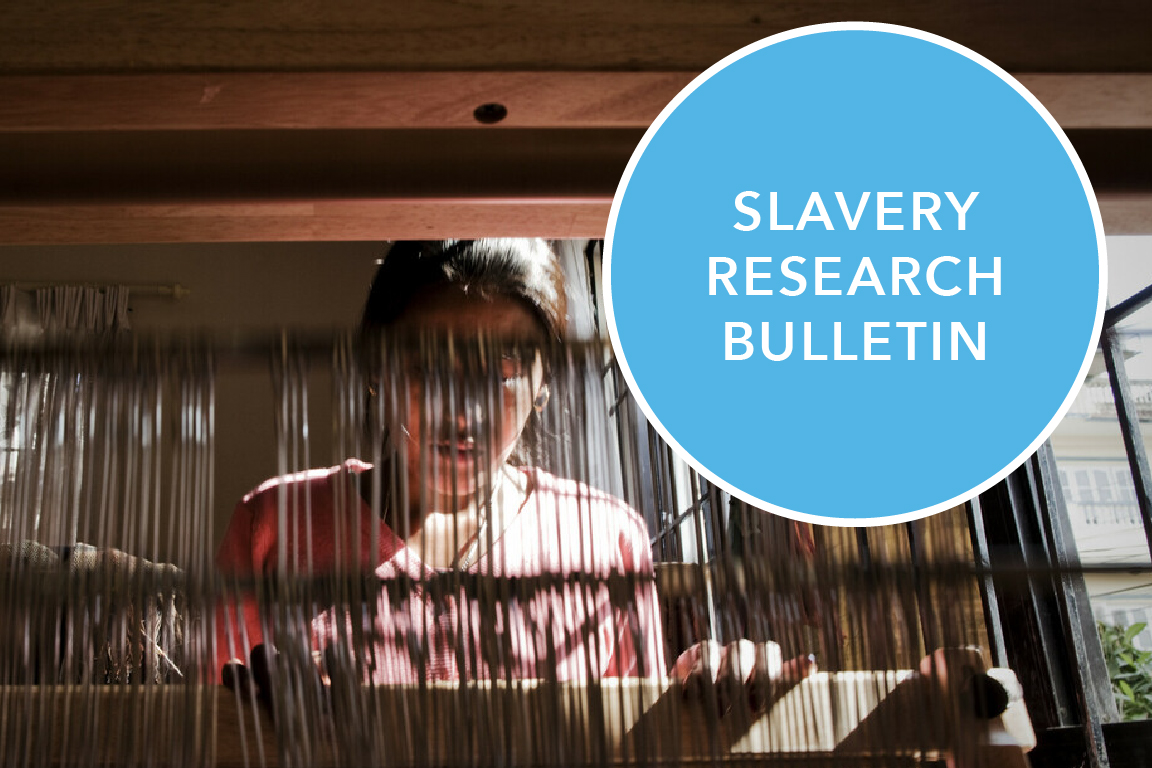Welcome to the Freedom Fund’s monthly bulletin designed to bring you new and compelling research from the global anti-slavery movement.
Addressing labour exploitation in the Indonesian seafood sector
The University of Sydney and the Freedom Fund examine models of worker organising within Indonesia’s seafood industry. Drawing on insights from over 160 workers and industry experts, the study investigates the plight of seafood factory workers and sea-based fishers, often paid on piece-rate or profit-sharing arrangements without a formal employer. Highlighting promising examples from neighbouring countries and industries, the study shows that organising and collective action among low-wage, informal workers is possible. Although worker organising requires long-term investment and may take unpredictable paths, it is fundamental for sustained advancements in labour rights.
The downstream effect of unrestricted grants on community decision making
The African Institute for Children Studies evaluates the impact of the Freedom Fund’s unrestricted grants to survivor-led organisations in Kenya and Uganda, under the Survivor Leadership Fund (SLF). Surveys and interviews with 68 NGO staff, volunteers, and community members found that unrestricted grants can contribute towards more inclusive and community-led decision making. Over four-fifths (83 percent) of respondents reported more equitable donor-grantee relationships through the SLF. Notably, survivors and community members reported greater involvement in decision making for SLF grants than with other sources of funding.
Aluminium used in car manufacturing tainted by forced labour in China
Human Rights Watch investigates the links between aluminium, forced labour and the global passenger car market. The study focuses on the Xinjiang Uyghur Autonomous Region (XUAR) in northwestern China, which produces nine percent of the world’s aluminium supply. Drawing from document reviews and anonymous interviews with ten experts in the aluminium and automotive industries, the study presents evidence of aluminium from XUAR being sold to other provinces in China and entering global supply chains. The study also highlights the challenges in fully tracing aluminium sourced from traders, the restricted access to XUAR, and the criminalisation of forced labour studies in China.
Food insecurity influences child marriage practices in Zimbabwe
Women’s Refugee Commission explores how food insecurity increases child marriage rates in Chiredzi, southwestern Zimbabwe. This study uses a mixed-method approach, including participant-led SenseMaker storytelling by 1,668 community members. Food insecurity features in 48 percent of the stories, with the analysis revealing a statistically significant link between food insecurity, families adopting survival strategies, and child marriage. Parents often forced their daughters into marriage to ease their economic burden. At the same time, adolescents are also initiating their own marriages, seeing it as the preferable alternative to the poverty, domestic abuse and parental neglect they endure.
Interconnected risks between climate change and modern slavery
A study led by Rights Lab at the University of Nottingham identifies opportunities to strengthen the alignment between modern slavery and climate change through UK public policies. Based on a review of 95 publications, policy and legal analyses, and discussions with 21 subject matter experts, the study exposes the disconnect between climate change mitigation and anti-slavery efforts within the UK governance framework. The report offers 17 recommendations, including the need to address evidence gaps and draw on the expertise of survivors and lived experience at every stage of policy making.
Read on
Justice & Care emphasises the heightened risk of modern slavery faced by refugees and internally displaced persons, and highlights promising practices for addressing trafficking in humanitarian settings.
Oslo Metropolitan University leads a scoping review to assess the current landscape of livestreaming technology and online child sexual abuse, including the barriers to investigating and prosecuting offenders.
The San Diego County Public Safety Office, in collaboration with Point Loma Nazarene University, reviews the existing literature on labour and sex trafficking of males in the United States to address the distinct needs of male survivors.
Freedom Fund news
A new study by United Nations University and the Freedom Fund will explore the links between access to official documentation and vulnerability to modern slavery, find out further details here.
Visit our Newsroom for more updates.
Research library
Visit our Slavery Research Library to access anti-slavery resources from across the globe.
Contact
The Slavery Research Bulletin is produced monthly by the Freedom Fund, a global fund with the sole aim of helping end modern slavery.
Research being featured in this bulletin does not equal endorsement by the Freedom Fund.
Click here to sign up to the Slavery Research Bulletin mailing list.
Photo credit: Katie Orlinsky / Legatum Limited



